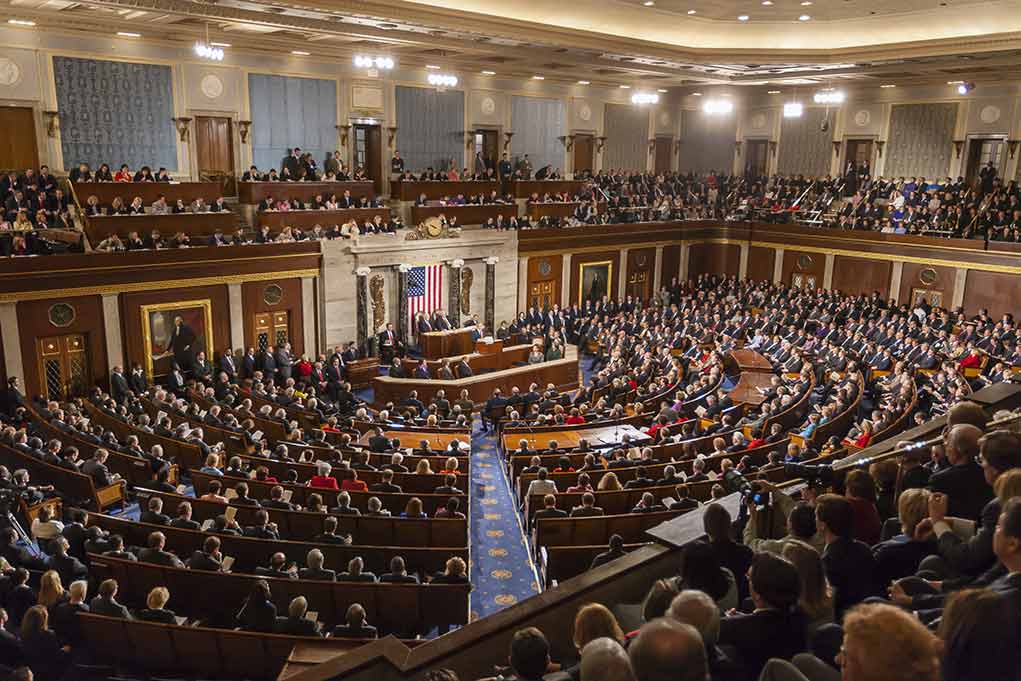
Senator Rand Paul delivers a scathing rebuke of the House-passed GOP budget bill, calling a proposed $4 trillion debt ceiling increase a “slap in the face” to conservatives who believed Trump’s administration would rein in reckless spending.
Key Takeaways
- Sen. Rand Paul adamantly opposes the House GOP budget bill’s provision to raise the debt ceiling by $4 trillion over two years, calling it “historic” and “unprecedented.”
- Paul questions the necessity of such massive debt ceiling increases when Elon Musk’s Department of Government Efficiency (DOGE) has purportedly identified significant spending cuts.
- Senate Republicans face internal division over the bill, with several senators including Ron Johnson calling the proposed cuts a “sad joke” and Josh Hawley opposing Medicaid changes.
- With a 53-seat majority, Senate Republicans can only afford three defections to pass the bill, with Vice President Vance potentially breaking a 50-50 tie.
- Paul has indicated he might support the bill if the debt ceiling increase is removed, but remains skeptical about the reality of the proposed spending cuts.
A Conservative Rebellion Against Fiscal Expansion
Senator Rand Paul has taken a firm stand against a House-passed Republican budget bill designed to implement President Trump’s legislative priorities, specifically objecting to its provision raising the debt ceiling by $4 trillion over two years. The Kentucky senator’s opposition highlights growing tensions within the Republican Party over fiscal discipline even as the party controls both chambers of Congress and the White House. Paul’s criticism centers on what he views as abandonment of conservative principles of limited government and balanced budgets, particularly troubling after Republicans campaigned on promises to address the nation’s spiraling debt.
“The problem is it’s asking conservatives, like myself, to raise the debt ceiling $5 trillion. That’s historic. No one’s ever raised the debt ceiling that much,” said Rand Paul, Senator from Kentucky.
Paul expressed particular frustration with what he perceives as hypocrisy in the GOP’s fiscal approach, suggesting that the substantial debt ceiling increase undermines the party’s claims about implementing meaningful spending reductions. He points to the stark reality of projected deficits, noting that “this year the deficit will be over $2 trillion, but it means they’re anticipating close to $3 trillion for the next year.” This observation comes as President Trump’s administration has prominently featured Elon Musk’s Department of Government Efficiency (DOGE), which was established to identify and eliminate wasteful government spending.
BREAKING – Rhetoric vs. Reality: In case you were still asleep when this happened over two hours ago, Senator Rand Paul (@RandPaul) (R-KY) was the lone Republican to vote against a $340 billion Senate budget resolution, arguing it contradicts GOP claims of fiscal conservatism.… pic.twitter.com/cSf4ONZX21
— Simon Ateba (@simonateba) February 21, 2025
Growing Senate Republican Resistance
Paul is not alone in his criticism of the House proposal. Several Republican senators have voiced concerns about various aspects of the bill, suggesting a difficult path forward in the Senate despite the party’s 53-seat majority. Wisconsin Senator Ron Johnson characterized the House budget plan as “a sad joke,” while Missouri Senator Josh Hawley has specifically opposed proposed Medicaid changes that would introduce co-pays for recipients and freeze state taxes on hospitals. This internal opposition reflects broader disagreements about the appropriate level of fiscal restraint and the specific mechanisms for achieving it.
“Unfortunately, it’s a sad joke,” said Wisconsin GOP Sen. Ron Johnson, regarding the House budget plan.
The House package aims to implement $1.5 trillion in spending cuts to offset the costs of making the 2017 Trump tax cuts permanent. However, some House conservatives have pushed for deeper cuts of around $2 trillion, while Senator Johnson has advocated for reverting to pre-pandemic spending levels altogether. Senator John Cornyn has suggested that the Senate will likely modify the House bill, potentially using the budget reconciliation process to avoid a Democratic filibuster. This procedural approach would allow passage with a simple majority but requires careful navigation of Senate rules.
A Condition for Support
Despite his strong opposition to the current form of the bill, Paul has indicated a potential path forward. He stated that removing the debt ceiling increase might persuade him to support the legislation, though he remains skeptical about the substance of the proposed spending cuts. This conditional support highlights the delicate balancing act Republican leadership faces in trying to unite the party behind President Trump’s agenda while addressing concerns from fiscal conservatives like Paul who prioritize debt reduction and limited government.
“It’s really a slap in the face at those of us who are excited about Elon Musk and DOGE and all the cuts,” said Rand Paul, Senator from Kentucky.
With Senate Republicans only able to afford three defections to pass the bill (with Vice President Vance potentially breaking a 50-50 tie), addressing Paul’s concerns may prove crucial to the legislation’s success. Additional complications arise from other ongoing negotiations, including Rep. Nick LaLota’s efforts to restore the SALT tax deduction, which could further increase the bill’s cost. As the Senate prepares to consider the House bill, the tension between implementing Trump’s policy priorities and maintaining fiscal discipline continues to define the Republican Party’s internal debates about governance and economic policy.




